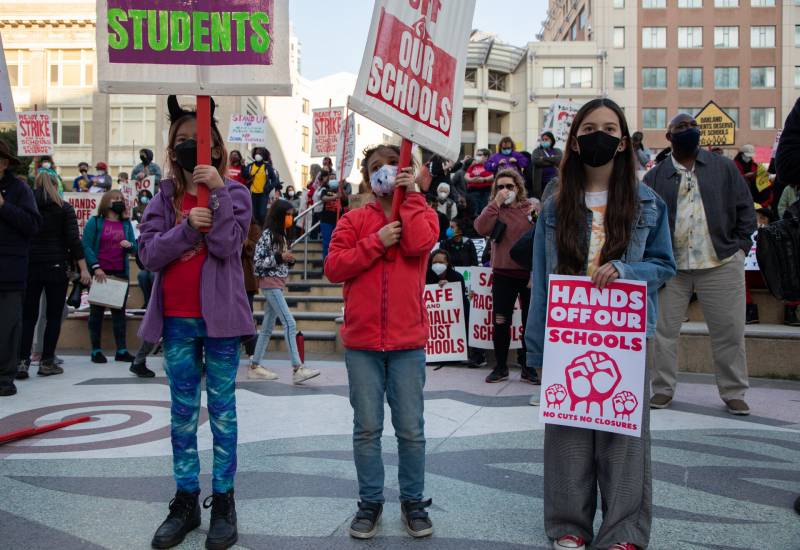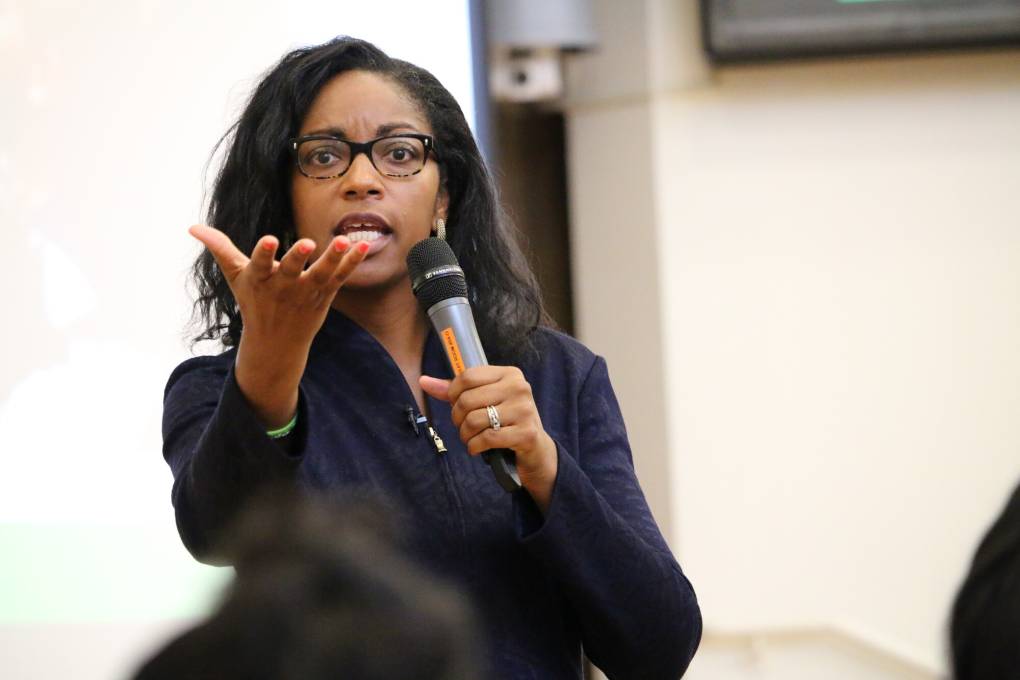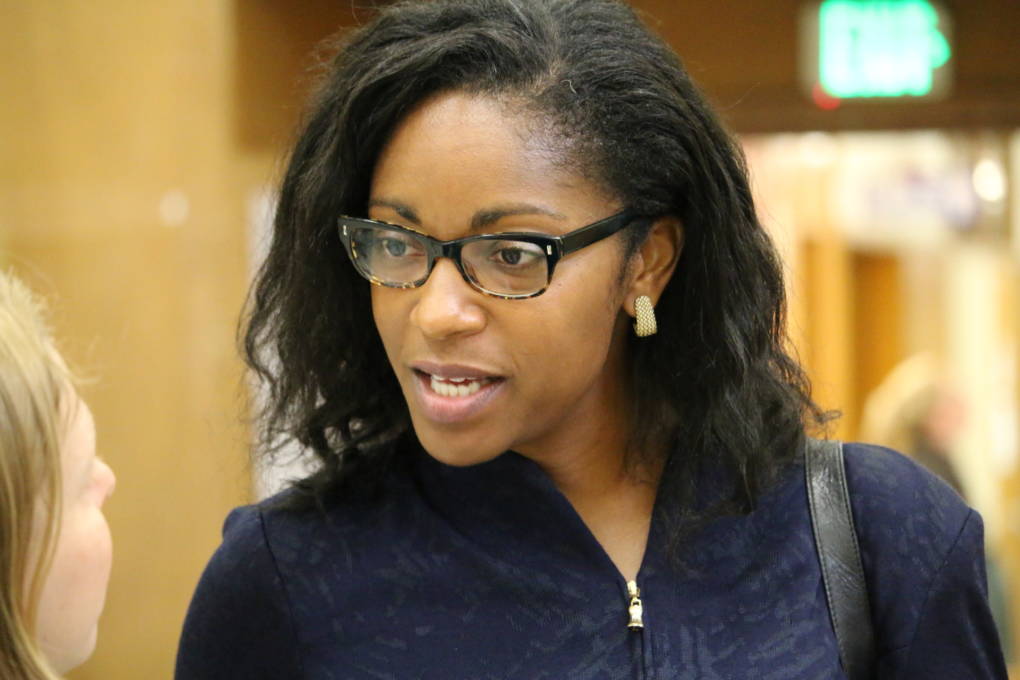After almost eight hours of heated public comment and debate, Oakland school board members narrowly approved an amended plan early Wednesday morning to close seven schools over the next two years and merge two others, amid declining enrollments and ongoing budget concerns.
The Oakland Board of Education's decision, voted on just before 1 a.m., is a slightly less severe version of the original proposal — which would have affected 16 schools — and comes after more than a week of protests by students, teachers and parents, including a hunger strike led by two educators.
Under the amended plan, seven of the eight schools on the initial closure list will still shut down, but on a delayed timeline: Community Day School and Parker K-8 will still close at the end of this school year, but the closures of Brookfield Elementary, Carl Munck Elementary and Grass Valley Elementary will be pushed to the end of the 2022-23 school year. Korematsu Discovery Academy and Horace Mann Elementary will also close in 2023, as called for in the original plan.
Prescott Elementary in West Oakland, however, which was initially on the chopping block, will be spared under the revised plan, after the board reasoned there would be too few remaining district-run elementary schools in that part of the city.
Meanwhile, the district will merge only two of the six schools it had originally considered consolidating: RISE Community will merge into New Highland Academy Elementary at the start of the 2022-23 school year, while La Escuelita Elementary and Hillcrest Elementary will eliminate grades 6-8.



